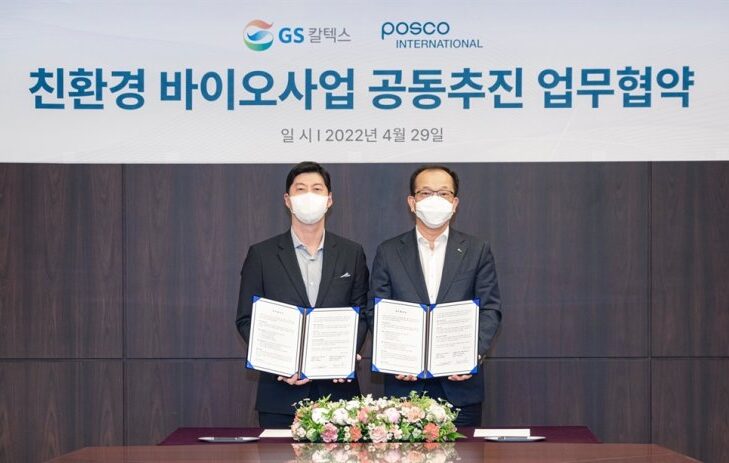
POSCO, GS Caltex sign MoU on next-generation biofuel business
POSCO International is a global resource development company that operates in the fields of oil and gas, minerals and food resources. In 2011, the company established large-scale palm plantations and facility investments in Papua, Indonesia, to enter the palm oil business, and has developed a local mass-production system. POSCO International has previously signalled plans to continue expanding the value chain of the palm oil industry.
On Friday, April 29, POSCO International signed a memorandum of understanding (MoU) with GS Caltex for the joint development of an eco-friendly bio business based on palm oil. The agreement was signed by POSCO International CEO, Joo Si-bo, and GS Caltex CEO, Hur Sae-hong. A raw material refining facility and a biofuel plant in Indonesia are the first joint projects for the two companies.
GS Caltex has expertise in biofuels which complements POSCO International’s palm oil capabilities. The partnership aims to increase the added value of palm oil and leverage each other’s strengths in the food and energy industries.
Palm oil has been advocated as an eco-friendly crop compared to soybean, sunflower and rapeseed, as more oil can be extracted on far less land. Despite some scepticism about land conversion and life-cycle emissions, the Malaysian Palm Oil Council has previously argued that palm oil offers the best balance between land for conservation and land for agricultural development. Palm cultivation accounts for only 10% of the world’s plant crops, yet it accounts for one-third of production.
The MoU includes plans for raw material refining to bioproduct production and a next-generation biofuel business through waste oil recovery. The companies have highlighted the contribution of the initiatives to greenhouse gas emissions reduction. They will simultaneously produce biofuels and collect waste oil as part of the Clean Development Mechanism (CDM). Countries can earn credit for the greenhouse gas reduction they achieve in developing countries via the CDM.









